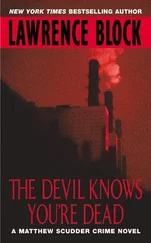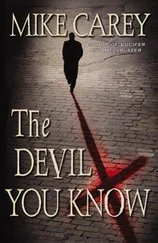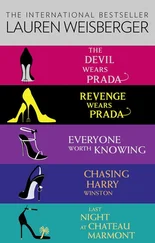Did I go to her? Why ask me that question, Fergus? Here, in front of all of these people? You were at my mother’s funeral and you know well that I wasn’t.
M. Deauville rang at the moments when I felt weak, and there were no moments when I felt strong. He had to check in with me day and night. I could not be left to my own devices for long. When I felt I couldn’t cope a second longer and had reached for the hotel phone to dial room service to order up a drink, on cue, my mobile would ring. It was as if he could read my mind. It takes one to know one, I suppose. I’d put down one phone to answer the other, overcome with gratitude tinged with resentment and the inevitable and apparently endless flood of shame.
Once I started talking to M. Deauville, I found I couldn’t stop. It all came pouring out. I bared my soul to the man, revealed its shrivelled dimensions, allowed him to gauge its clotted heft, or what was left of it. He appeared genuinely concerned for its fate, wretch slab of offal that it was, as pitted and honeycombed as a consumptive lung. He accepted the sorry state of it and did not condemn me, but instead listened patiently as I droned on. I owed him my life. It was as simple as that. I cannot overstate the degree of my indebtedness. Without M. Deauville, I would be long in my grave. Of that there is no doubt.
‘You’re a saint,’ I told him after one particularly gruelling session which had racked my body with tears, wrung it out like an old rag. I nodded vigorously to persuade him of my sincerity, as if he were there in the room. I felt him there. I felt him with me. ‘A saint,’ I averred, ‘a walking saint!’
It was the only time I ever heard M. Deauville laugh.
*
No, I’m afraid I cannot disclose M. Deauville’s full name to the Commission, primarily because I don’t know it. He never mentioned a Christian name. Alcoholics Anonymous it is called. That first phone call on the hospital steps was the only time he had occasion to use his name, which led to the confusion that later ensued. We’ll come to that.
Naturally, I waited for him to invite me to use his forename — please, just call me X — particularly since he never addressed me as Mr St Lawrence. Or Lord Howth, if you wish to get pedantic. Always it was Tristram, but this familiarity did not extend both ways.
His nationality? Again, this is something of a grey area. There are no white areas in my tale. His English was elegant although I doubt it was his mother tongue. His use of it was too formal, too academic. I was unable to pinpoint his first language, such was his mastery of them all. When a minion entered his office seeking authorisation on some matter, he would answer in German or French or Russian or on one occasion in what I think was Mandarin, switching from one language to another as if changing stations on a radio. His calls originated from every corner of the globe since he moved about constantly to service his many international business interests. If I apologised for taking up his time at an ungodly hour, he would murmur to think nothing of it, that all hours were ungodly and that it was the working day in his part of the world. Sometimes airport announcements were audible in the background. The flight for Dubai is now boarding. Please have your passport and boarding card ready for inspection . And then you’d hear nothing for a few hours, his phone set to flight mode.
Over the years of our association, I came to think of M. Deauville as another Lawrence, pronounced with a Gallic inflection: Laurent. He was my own personal Saint Lawrence, my Higher Power. It is true that M. Deauville did not put his signature to a single document pertaining to Castle Holdings, despite his being the architect of the enterprise. I trawled through every last communication in my possession before submitting the file in its entirety to you. Unfortunately, it is my family name that is scrawled all over the operation, mine and Desmond Hickey’s. Therefore, I cannot confirm the spelling. Perhaps I misheard him on the hospital steps. Perhaps he was not Laurent Deauville but Laurent de Ville, Lawrence of the City, the ultimate urbanite, the bottom line in sophistication. Yes, it is fair to say I was in awe of him. He was a man from an old era, you see, from an old family, older than mine. All families are old, it goes without saying, but some — well, they have moulded history. They have exerted a force through time. I would not have been in the least bit surprised had M. Deauville revealed to me that he could trace a direct line to the Medici princes, or to Alexander the Great, or Ivan the Terrible. But he did not reveal any such thing to me. He revealed nothing at all. Monsieur du Veil, he should have called himself, because he always wore one. You will never catch him. There is not a chance of that. There is not a chance in hell.
‘Mr St Lawrence, can you clarify the extent of Desmond Hickey’s involvement with Mr Deauville?’
No, Fergus, I cannot. That is a matter for Hickey’s conscience and Hickey’s conscience alone, if he has one. To my knowledge, M. Deauville spoke only to me. To me and through me. I am an interpreter, a perfect conduit, an instrument of others. M. Deauville issued the instructions and I carried them out. At first, I tried to keep Hickey’s name out of our conversations on the grounds that M. Deauville would have disapproved of the company I was keeping, or that was keeping me, because I couldn’t quite get shot of D. Hickey, I couldn’t quite shake him off.
I came out of the bank at Sutton Cross having lodged that initial Castle Holdings cheque. I’d anticipated trouble from the cashier — ‘This is not a valid cheque, sir’; ‘You cannot write a cheque to yourself for a hundred grand, Mr St Lawrence,’ but apparently it was, and you could. Anything was possible in an Irish bank back then. The Cross was dazzlingly vivid, as if I’d stumbled out of the darkness of a cinema into morning light. Each object was remarkable for its industrious wholeness, its bright sovereignty, and I was happy standing there in the afternoon sunshine and being part of it, the cheque for Father in my hand, when the battered red flatbed truck swerved and mounted the kerb. Hickey rolled down the window. ‘There ya are,’ he shouted at me. ‘Hop in.’ I’m telling you, that man could smell money.
‘Now,’ he said as we pulled away, ‘I’ve had a better idea.’ I smiled. There were some things you could always count on. Not that Hickey would have a better idea, but that he would think that the idea was a better one. The recent history of this country has been moulded by those without the vision to perceive the flaws in their plans.
He drove in the direction of the castle but pulled in at the old cement factory, which was located a few hundred yards shy of my gateposts and on the other side of the road. Only in Ireland would the acreage flanking a white sand beach be zoned for industrial use.
‘We don’t own this land any more,’ I said, heading him off at the pass.
Hickey threw his hands in the air. ‘Did I open me mouth?’ He jumped out and unlocked the gate and we trundled around the back of the lot. The factory was derelict. So was the motor company. And the petrol station beyond it.
‘So anyway,’ he said as we meandered along the perimeter wall, which was festooned with graffiti and edged with weeds, ‘this is me next project. I’m developing it for residential an commercial use.’ He pointed out through the passenger window. ‘There’ll be an apartment block here,’ we rolled along, ‘an another here, an two over there. Eight blocks in total, ranging in height from three to eight storeys. We’re looking at the guts of 400 residential units, with about 12,000 square metres of office an commercial space at ground level, to include a hotel.’
Читать дальше












